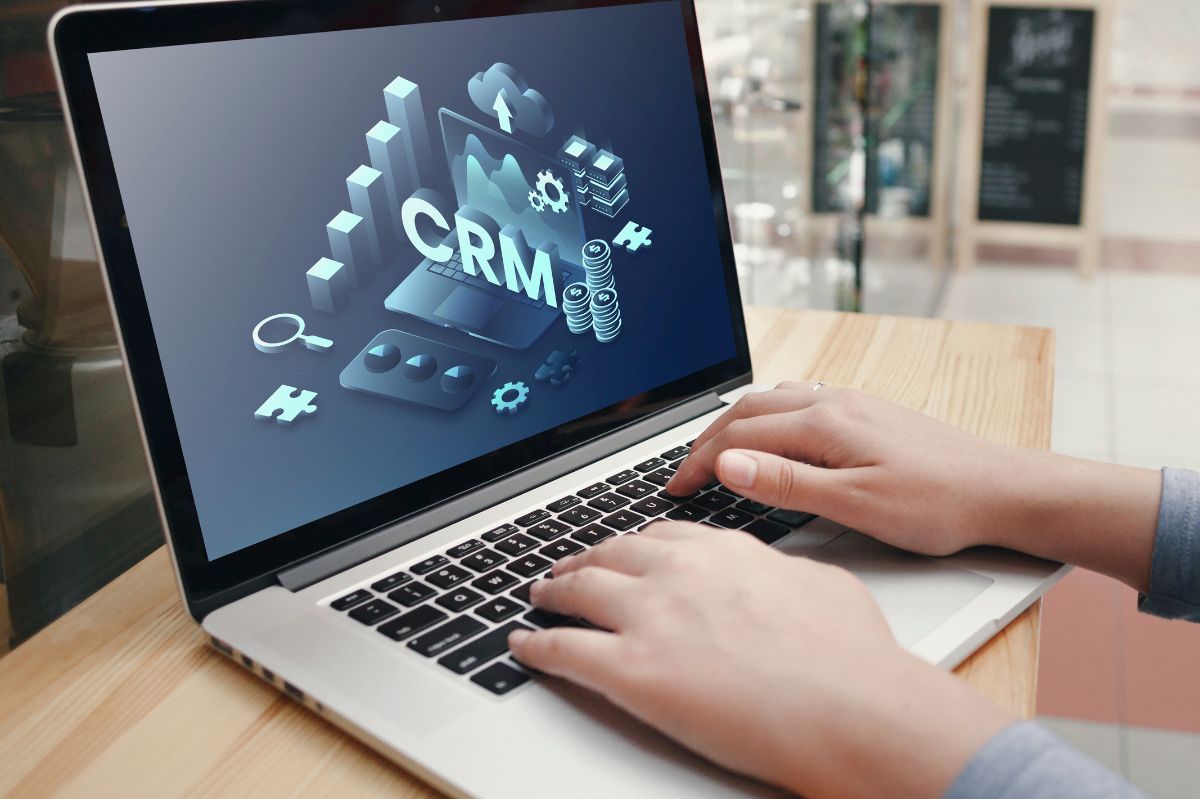Why is it so important to have a CRM that manages relationships between e-commerce and customers?
CRM stands for Customer Relationship Management and identifies a platform with which you can manage sales, marketing, contacts and all data on the operational activities of your online store. It is not just a management system for customer relations but a tool to keep their customer journey under control and to build their loyalty by personalizing their purchasing experience.
Table of Contents
How much does a CRM cost?
CRM software has variable costs based on the complexity and richness of its features. The free ones have obvious operational limits, and an e-commerce that achieves significant numbers must necessarily include the cost of this tool in the budget. Normally, CRM suppliers make available various monthly or annual payment plans, the cost of which varies depending on the number of contacts in the database (the more there are, the greater the expense), the features and the number of accounts using the software.
Various features designed to automate certain tasks and accelerate sales pipelines influence the cost of a CRM. In particular:
- Pipeline management starts from the lead and tracks all phases of the sales cycle.
- Sharing calendars and scheduling tools (for calls and appointments).
- Tracking of company communications on contacts.
- Automation of sales processes for sellers is also available via mobile devices.
- Contract management.
There are no standard prices, not to mention that many software allow customization of the instrument, which causes costs to fluctuate depending on requests.
What is a CRM for?
A CRM is, first and foremost, a management system that serves to keep the reins of what happens in your e-commerce. This is not a simple tool that allows you to track customer behaviour, but a management system with which you can identify new leads, cultivate and nurture those who have not purchased in a while with lead nurturing strategies and set up processes marketing automation to increase the chances of conversion at multiple moments.
In practice, with CRM, you can manage digital marketing, support the entire sales department and monitor customer service activities in a single environment. This allows you not to waste your energy using multiple tools but to have all the data relating to sales flows in one place.
With the CRM, you can obtain information on the following:
- behaviour and relationship history of each contact
- sale process
- historical and forecast trends
If I didn’t have it, all this would escape precise and punctual control. In fact, with the CRM, you have the sales pipeline under control. This model illustrates the path that your contacts take and that you can filter between those who are ready to purchase (“sales-ready”) and those who have not yet decided why they lack that connection with the brand that pushes them to convert and therefore, they need more “nourishment” (lead nurturing). You can set the right conversion path for each if you are fully aware of who buys, when or why they don’t.
The CRM to improve the customer’s Customer Journey.
If it is true that a CRM improves the management of your online store, it is also true that this means offering a real purchasing experience to your customers. You can manage relationships with your customers, giving them more excellent support because you will know the reasons that drive them to behave in a certain way. The information you can get with a CRM is related to interests, preferences and purchasing reasons, just to name a few.
A CRM is, in fact, a potent tool for lead nurturing through automatic or personal follow-up systems on contacts within the database. Each customer has a name, email, date of birth, and all elements that can be used, for example, to carry out personalized email marketing activities.
Within the CRM, contacts can also be targeted by purchasing behaviour, allowing you to create targeted marketing campaigns. For example, by setting:
- birthday discount codes
- email reminder in case of cart abandonment
- purchasing advice for cross-selling in relation to previous purchases
This system is more efficient than a random sending of emails to the same database because shooting into the mix does not convert like a reasoned sending based on the user’s behaviour.
Which CRM to choose?
Among the recommended CRMs, Hubspot is ideal for managing customer relationship activities. But to evaluate the most suitable CRM for your e-commerce, you must consider several elements:
- Accuracy: the more information the CRM allows you to save, the more the value of this tool will increase (also for the price). The data you can record in the database include contact information, demographic information, interests, personal preferences, purchase history and interactions with your e-commerce.
- Security: due to the data that the CRM records, it is essential that this tool is equipped with security systems capable of preventing attacks and information leaks, as well as giving you the ability to access your data at all times. Contributing to increasing security are multi-factor authentication for each user who can access it, reliable servers and network security (constant virus scans, IDS/IDP, secure operating system and access audit), being able to define many different roles for accounts and access only to IPs allowed by the system administrator.
- Saves time and money: The more streamlined a CRM is, the more time it will save you. We are talking about a simple interface, which requires a shorter training period to facilitate the whole team’s work.
- Sales management: the more actions the CRM allows you to carry out to accelerate sales, the more expensive the tool will be (but certainly more valid). If the CRM allows you to use specific features, then you will be able to make your marketing strategies effective. In particular, evaluate software that allows you to generate leads from qualified leads from different sources, such as social networks or website visits, lead nurturing through automatic or personal follow-up systems on leads, email marketing starting from segmented email lists, sending personalized quotes and invoices, order, performance and competitor tracking and sales forecasts.
- Support for the sales team: a good CRM allows you to create an account dedicated to each sales team member so that they can monitor the performance of the activities carried out by tracking numbers, estimates, incentives received and other metrics. This functionality helps determine a CRM’s cost but is functional in improving the sales team’s activities to achieve their monthly or weekly objectives.
If you are undecided between multiple CRMs, you could test different software with free demos and choose the one that best suits your needs.
How to integrate CRM within your company
CRM also helps streamline the internal management of the sales team to the benefit of workflows. These tools allow you to organize and track customer interactions in a single central database, where your company team can obtain contact information. This way, the sales team works more efficiently and the chances of closing a sale increase.
In fact, with a CRM, the qualification of leads for both marketing and sales improves, offering full transparency on the characteristics and behaviour of the customer. This becomes an essential aspect for sales and marketing teams to carry out effective lead generation: they know how to personalize the offer for the customer, how to approach them, how to approach them according to their times and needs and how to cross-sell (which different or complementary products to offer them). All this is possible in real-time: the work, in practice, becomes much simpler.
The CRM creates the perfect synergy between sales and marketing.
CRM is an excellent tool for making the sales team work in synergy – which knows exactly where customers are in the purchasing process – and the marketing team – which knows how to do lead nurturing to encourage those who have yet to convert to purchase. Clearly, the processes must not be limited to a single sale, but we must set up, together, a loyalty path that lasts over time. The goal of both teams is to create a lasting relationship with customers:
- for the sales team by completing more purchases throughout the year
- for marketing by converting users into warm leads
In fact, too often, companies lack a meeting point between those who deal with online marketing and those who procure customers and try to conclude the sale. Marketing activities should intersect in a team effort that has the same objective: conversion. With CRM, you can offer a valuable tool to both, avoiding misunderstandings, wasting energy and time, and, above all, losing customers and turnover.
A CRM for e-commerce is essential; without it, it would be chaos. It’s not an exaggeration to say it, but a CRM lays the foundations for the success of an online store because it means total control over what happens. It is certainly not enough to implement one to expect results because it is obviously the strategy that is created afterwards that makes the difference, but without it, it is certainly not possible to optimize sales and increase turnover like those who use it.
Also Read : Lead Generation And Marketing Automation: From The Acquisition Of Contacts To Their Loyalty







